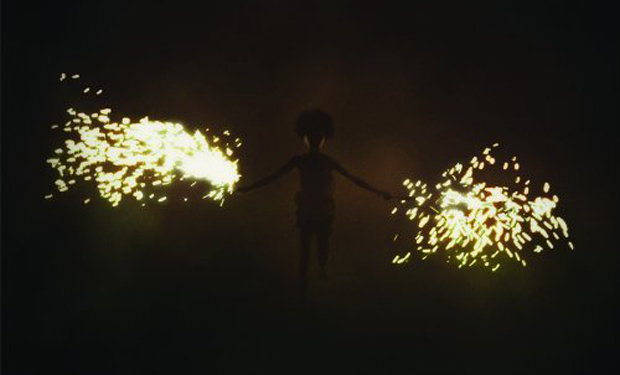Wednesday, February 24, 2016
On Tragedy: The Brave Men Don't Run

At the beginning of Ashes and
Diamonds, Commissar Szczuka’s men plead to know when the killing will stop,
when they will be safe. Solemnly, he replies, “I would be a bad communist if I
were to reassure you like a bunch of naïve kids.” Andersen’s Under the Willow Tree, Chekhov’s Heartache, and Wajda’s Ashes and Diamonds seem to look at us
with careful eyes, as Szczuka looks at his men, and sigh, “We would be bad
tragedies if we were to reassure you like a bunch of naïve kids.”
Tragedy lies not just in loss, but in losing one’s own way. Knud
loses Joanna, home, and finds that the things that once held beauty for him are
redefined: elderbush and willow trees become sorrow, not joy. The things he
loses empty him until he’s not quite sure what to be filled with. He forgets
how to see, seeing “but half the world around him; the other half he carried
with him in his inward thoughts”. When Joanna gently turned him down, she
pleaded, “Knud, do not make yourself and me unhappy.” He tries for a long time
to listen, but ends up stumbling home filled with sorrow, “the deepest that can
be felt by human nature. Such grief is not for the world; it is not
entertaining even to friends.” Tragedy insists both firmly and gently that we
sometimes do not choose such grief; we are not always the ones to make
ourselves unhappy.
That same grief which refuses to be denied by the lovely Joanna’s
pleading or the breathtaking Alps refuses to leave Iona. Like “poor Knud”, who “had
no friends,” Iona’s own snowy night is filled with the man trying to give his
grief for a moment to anyone who will listen. But his passengers are less than happy
to give ear. Chekhov writes that for Iona to “talk about [his son] with someone
is possible, but to think of him and picture him is insufferable anguish.” What,
then, is more tragic than when no one will let him simply talk? When no one
will touch a man’s burdens, let alone bear them; when the only creature that
will sit and suck the poison from the wound is a brute who wants only a rubdown
and oats?
Maciek finds someone who will half-listen: Krystyna. But she is
almost more tragic than Maciek; he orients himself, begins to care, and she
still stands bored at the bar like the woman in Manet’s A Bar at the Folies-Bergère. Part of Maciek’s tragedy is in losing her;
but most comes from what he understands as he talks to her. “There are things I
never really had to think about,” he realizes. “Life always just seemed to work
itself out.” Maciek’s tragedy lies in discovering that it doesn’t always. In
class, we spoke of a lot of tragedy revolving around “misinterpreting what is
set and what is not.” Maciek discovers that, just this once, life does not
follow its familiar pattern.
In Maciek’s case, his life isn’t just unmoored; it ends. Knud’s
does too, his frozen body found under the symbol of his honey-sweet youth,
under the arms of “father-willow”. Iona is alone, a sort of death in itself,
and left to share his grief with a horse. Tragedy reminds us that even if we
look away, things may fall apart and many things end.
Make ourselves unhappy? We will and must twist and run if we are
trying to choose between old convictions and new revelations. When we bravely
admit love and the one we love turns pale and cries and calls us ‘brother’, we
will of course feel as if “the world had slid out of its course.” We will want
to “tell it properly” when our child dies before us when “he ought to have
lived,” when he “went and died for no reason,” and we will be carried away when
left to tell it to a nag.
In Beasts of the Southern
Wild, Hushpuppy, a fierce, sad child, says something key to accessing
tragedy in both art and life. Her father is dying, but she understands. “Everybody
loses the thing that made them. It’s even how it’s supposed to be in nature.” She
sees a dead pig in the road. She doesn’t turn away. “The brave men stay and
watch it happen,” she says quietly. “They don’t run.”

Labels:
andrzej wajda,
anton chekhov,
art,
ashes and diamonds,
beasts of the southern wild,
essay,
hans christian andersen,
heartache,
Hushpuppy,
jasmine thompson,
misery,
narrative,
tragedy,
tragic,
willow tree
Subscribe to:
Posts (Atom)
